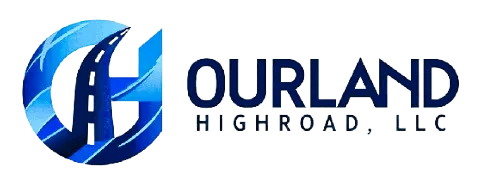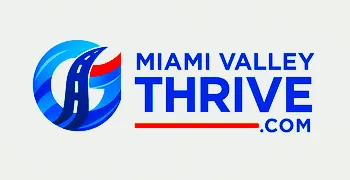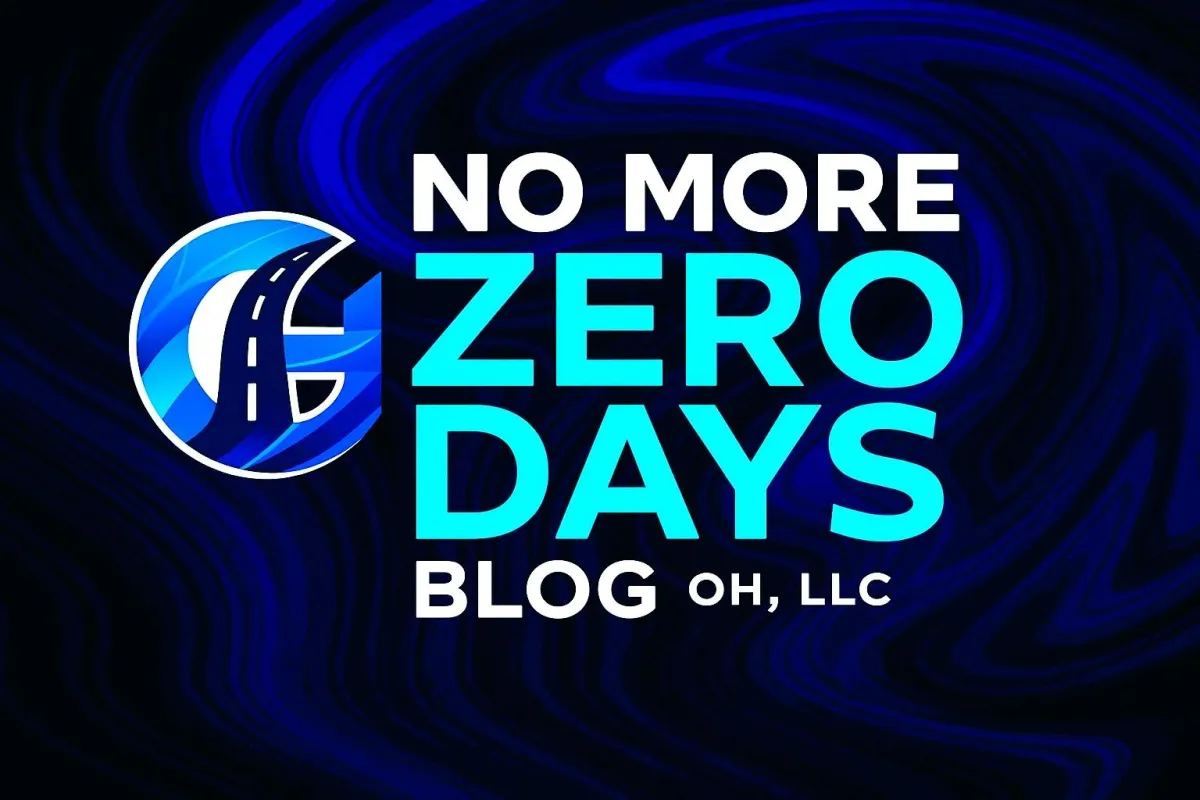Paving The Path to Success - Rocking Your Sites SEO!
The Tools To Use For SEO In 2026
A Gift of Service for You
The Best SEO Tools in 2026? Top 20 Free & Paid Options Tested and Reviewed
Discovering the right SEO tools can make all the difference in your website’s growth journey. As we step into 2026, both free and premium platforms have evolved with advanced features to boost your search rankings, analyze competitors, and uncover valuable keywords. In this comprehensive review, we’ve tested and ranked the top 20 SEO tools that deliver real results. Whether you’re just starting out or looking to fine-tune your strategy, you’ll find practical insights and honest recommendations to help you choose tools that match your goals and budget.

Brief Overview
Choosing top SEO tools in 2026 means finding platforms that balance powerful features, ease of use, and real, measurable gains in search rankings. Combining tools like Page Optimizer Pro, Ubersuggest, and Answer the Public streamlines keyword research, content optimization, and competitor analysis—giving your website a real edge. Whether you’re new or seasoned, these platforms work together to provide actionable insights and drive meaningful growth. Focus on integrating tools that support your goals, embrace regular monitoring, and make your SEO strategy smarter and more effective.
Key Highlights
Integrating on-page, off-page, and content research tools is key for efficient SEO optimization in 2025.
Page Optimizer Pro, Ubersuggest, and Answer the Public create a synergistic workflow for research, analysis, and on-page improvement.
Free SEO tools offer basic features, while paid platforms deliver advanced data, deeper analysis, and superior team support for scaling.
Usability, accurate data, real-time monitoring, and seamless integration with other platforms are essential criteria for selecting SEO tools.
Case studies prove these tools deliver measurable SEO gains and empower new and experienced marketers to outperform competitors.
Exploring the Top SEO Tools: Your Complete Overview
If you've ever wondered how to cut through the noise of “top” SEO tools and actually find the platforms that boost your website ranking, you're in the right place. This year, SEO analysis is more comprehensive than ever, blending multiple features, sophisticated competitor analysis, and real-time data monitoring into unified software platforms. From advanced keyword research to on-page optimization, it's all about using insights for precise decision-making. In this overview, we'll dive into the essential criteria that make an SEO tool stand out. Discover how expert teams, including ours at Ourland Highroad, LLC—leverage trusted tools to outperform competitors and unlock measurable growth.
Essential Criteria for Selecting an Effective SEO tool
With so many SEO tools now available, pinpointing what truly matters when choosing the right platform can feel overwhelming. But don’t worry, let’s break it down together. The most effective SEO tools aren’t simply about flashy dashboards; they’re about giving users actionable insights, streamlined data, and the software features that drive real progress for your website. As a digital marketer, I see firsthand how a good tool does more than automate SEO analysis. An effective SEO platform becomes your everyday partner, integrating seamlessly with your workflow so you’re never left behind by shifting Google algorithms or fast-moving competitors.
First and foremost, data accuracy is critical. If your SEO analysis relies on outdated or incomplete data, those “insights” might steer you in the wrong direction. The best SEO tools—like Ahrefs, SEMrush, SE Ranking, and of course the three we trust at Ourland Highroad, LLC (Page Optimizer Pro, Ubersuggest, and Answer the Public), all offer robust crawling and up-to-the-minute ranking metrics. You want a platform that fetches reliable, real-world numbers, so your optimization strategy is always grounded in fact, not guesswork.
Let’s talk features. The tools at the top in 2026 don’t just stop at simple site audits or keyword research; they support a complete workflow. That means your SEO software should include all the essentials: deep keyword research, site crawling, competitor analysis, content optimization, and tracking metrics over time. You also want features like team collaboration, because SEO is not a solo sport. Platforms providing streamlined sharing, project management, and monitoring make it easier to turn individual insights into coordinated results, especially for users managing multiple websites or working with teams.
The importance of competitor analysis can’t be overstated in today’s landscape. Successful SEO isn’t about working in a vacuum. The right tools will show you what your competitors are doing: which keywords bring them the most traffic, what content gaps are in your site vs. theirs, and how your ranking metrics stack up. This is why platforms like SEMrush, SE Ranking, and Ubersuggest have evolved beyond simple “check this keyword” actions into holistic competitor insights providers. When paired with tools like Answer the Public, you can even reveal untapped search trends, discovering what your audience is really searching for right now.
On the technical side, you want an SEO tool with powerful crawling and auditing software that’s both comprehensive and easy to use. Website health monitoring should be more than just catching broken links, it should help you spot missed optimization opportunities, slow-loading pages, and on-page SEO improvements that feed directly into higher Google rankings. For example, Page Optimizer Pro gives actionable optimization suggestions tied to your top competitors, so you know exactly what needs tuning.
Of course, intuitive UX matters. Even the most data-rich software becomes useless if it’s a chore to navigate. The best SEO platforms in 2025 are clean and user-friendly, making it easy for anyone, regardless of experience, to jump in and extract value. That means customizable dashboards, simple data exports, and straightforward reporting, which become game-changers for teams and beginners alike.
One exciting trend this year is platforms offering integrated content analysis and optimization tools. With Google’s algorithms becoming more sophisticated about content quality, ensuring your articles, landing pages, and category pages are perfectly tuned, for search intent, relevance, and competitive gaps—can set you apart. Page Optimizer Pro’s on-page recommendations, Ubersuggest’s keyword clustering, and Answer the Public’s real-time question mapping work in tandem for this very purpose. Each tool’s unique approach rounds out your workflow: Page Optimizer Pro for on-page, Ubersuggest for research and competitor analysis, Answer the Public for content ideation and search insights.
Let’s not forget monitoring. Your team (whether it’s just you or a group) will want real-time updates on optimization progress, ranking changes, and any major fluctuations in SERPs. The leading SEO software offers notification systems, scheduled analyses, and even predictive insights, so you’re always a step ahead. Keeping your website performing at its peak isn’t about haphazard checks, it’s about ongoing, proactive analysis that leverages the best data.
Another essential criterion is scalability. As your business grows, so will the demands on your SEO software. You may start out optimizing a single website, but down the line, you’ll want a platform or suite of tools that scales effortlessly, letting more users join and more projects launch without headaches. Look for flexible pricing, multi-user support, and cloud-based data management to avoid costly migrations and platform switches later.
Finally, the ability to integrate your SEO tool with other software and platforms is huge. Whether you’re pulling data from Google Analytics, exporting reports for stakeholders, or feeding research directly into your content management systems, avoiding siloed data is key. The most successful SEO teams use tools that “play nicely” with their larger digital marketing ecosystem.
So, as we move deeper into 2026, remember: the best SEO tools don’t just promise the world, they deliver consistent results, actionable insights, and intuitive workflows. At Ourland Highroad, LLC, we rely on Page Optimizer Pro, Ubersuggest, and Answer the Public because each is an expert in its own niche, yet all work together to give us the edge in research, competitor analysis, keyword intelligence, and real-time optimization. If you’re looking to build a futureproof SEO stack, let your essential criteria guide you, and aim for the tools that align with your unique goals, team needs, and the ever-changing world of Google search.
What Makes an SEO Tool Stand Out in the Modern Website Landscape?
There’s never been a more exciting, or more challenging time to pick the right SEO tools for your website. As the competition online keeps heating up, smart digital marketers and aspiring entrepreneurs need software that's built to deliver exceptional value, not just check boxes. The best SEO platforms go beyond classic keyword research and on-page tweaks, they empower your team with real insights, robust analysis, and features that keep your optimization on track. We're diving deep into the unique features and competitive advantages that separate standout SEO tools from the mediocre, focusing on both on-page and off-page capabilities.

Insights Into Leveraging On-Page and Off-Page Optimization Features
When it comes to finding the best SEO tool for your website in 2026, it’s crucial to look at how a platform brings together both on-page and off-page features into a seamless workflow. Let’s be honest: with countless SEO tools promising better rankings, better metrics, and surefire “SEO success,” the real standouts share one thing, they deliver actionable insights through a blend of robust features and real data, designed to help users at every skill level.
Start with on-page SEO, which is the foundation of any strong website optimization strategy. On-page optimization is all about getting your site structure, content, and keyword targeting spot on. The features you’ll want to see here include page-by-page SEO analysis, real-time optimization suggestions, and deep content analysis. Tools like Page Optimizer Pro are built for this, providing actionable on-page recommendations based on sophisticated SEO analysis—pulling in data from your website, top-performing competitors, and current Google ranking signals. When you’re able to see targeted keyword suggestions, content gaps, and on-page metrics, your optimization process becomes more precise and efficient. You stop guessing and start making confident, data-backed improvements to every web page.
But every digital marketer knows that SEO isn’t just about what’s on your site. Off-page optimization carries just as much weight in a modern SEO campaign. This is where backlink analysis, competitor analysis, and brand monitoring come into play. A world-class SEO platform gives you competitive advantages through features like backlink tracking and analysis, rank trackers, and even predictive competitor insights. For example, Ubersuggest stands out as a comprehensive solution for both keyword research and competitor analysis. With its intuitive dashboard, the software makes it easy to monitor competitor backlinks, track your own website’s progress, and discover new keyword opportunities that can drive more organic traffic to your content.
What gives a tool like Ubersuggest or Ahrefs an edge? It’s their focus on delivering quality data—lots of it, and in a digestible format. You get up-to-date information on keyword rankings, traffic estimates, SEO metrics, and backlink growth, setting you up to respond to trends and shifts in the Google search landscape in real time. And since SEO analysis needs to be ongoing, look for software that offers real-time monitoring, scheduled updates, and team collaboration tools so users can share insights and act fast.
Content remains king in 2025, so integrating content optimization with your SEO workflow is non-negotiable. Here’s where Answer the Public excels, giving you unique competitive advantages for keyword ideation and content planning. By showing you the actual questions and search terms real users are plugging into Google, Answer the Public arms your team with a steady stream of fresh content ideas that map perfectly to current search intent. And since these keywords and questions come directly from real-world data, your content strategy aligns with what users (and Google) are actually looking for, making your optimization both efficient and effective.
Now, take a step back: when you blend on-page optimization, off-page analysis, and content ideation in a single workflow, you create a powerful SEO ecosystem. At Ourland Highroad, LLC, this is how we run our SEO engine. Page Optimizer Pro gets our pages dialed in for top performance, Ubersuggest handles competitive research and keyword tracking, and Answer the Public uncovers untapped content opportunities. For an aspiring entrepreneur starting to optimize their website, these platforms show how on-page features (like content and keyword suggestions), off-page features (like backlink and competitor analysis), and data monitoring all fit together. Each feature complements the rest, turning scattered insights into focused action.
When evaluating SEO tools, don’t just ask what features a platform offer, look for how these features work together to move your website forward. Does your SEO software give your users a holistic overview of rankings, metrics, and competitor data? Is the keyword analysis deep enough to guide your content and on-page optimization efforts? Can you seamlessly switch from monitoring your own site’s health to scouting competitors and brainstorming new articles for your team? These are the questions that separate ordinary platforms from elite SEO tools.
Another critical factor for today’s teams is usability. Your SEO tool should help you focus on what matters, not distract you with unnecessary bells and whistles. The best platforms prioritize user experience, offering customizable dashboards, simple data exports, and clear reporting for anyone—whether they’re a solo entrepreneur or managing a multi-user team. Page Optimizer Pro, for instance, presents optimization suggestions in a way that’s easy to implement, letting you optimize faster and smarter without getting bogged down by data overload.
Don’t overlook the importance of integrations and scalability. The modern SEO landscape moves fast; you need tools that work fluidly with Google Analytics, Google Search Console, and your existing software stack. This seamless integration keeps all your website data in one place, so you can track metrics, analyze trends, and optimize on the fly. Look for platforms offering robust software integrations, flexible team management, and cloud-based features, so your SEO solution grows with your ambitions.
Let’s wrap with a practical tip for aspiring entrepreneurs: combine the strengths of several top SEO tools for a truly holistic experience. Use Page Optimizer Pro to laser-focus your on-page SEO, Ubersuggest for competitor analysis and keyword monitoring, and Answer the Public to fuel your content strategy. This approach ensures your website is equipped for every optimization challenge, giving your digital marketing the edge it needs to outpace competitors.
Comprehensive Comparison: Free vs. Paid SEO Tools
When you're navigating the SEO landscape in 2026, the choice between free and paid SEO tools is front and center. With a range of features, platforms, and software to pick from, understanding what each tool can deliver—be it analysis, keyword research, or competitor insights—makes all the difference. Whether you're solo or with a team, the decision boils down to your goals, budget, and how much hands-on control you want over your website's progress. Let’s dig in to help you confidently choose the right SEO tools that move your optimization strategy forward, aligning with your unique needs and resources.
How to Choose the Right One for Your Budget and Goals
Let’s be real, choosing among the endless SEO tools in 2026 can either supercharge your website’s growth or slow you down with half-baked features. Whether you’re eyeing free options or ready to invest in a paid platform, the “right” SEO tool comes down to more than just price; it’s about software value, data quality, and how seamlessly the tool fits into your website vision. Let’s break this down according to what aspiring entrepreneurs and ambitious digital marketers, like those we guide daily at Ourland Highroad, LLC, really need to consider.
First, clarify your goals. Are you looking for an SEO platform that specializes in keyword research, or are you aiming for all-in-one software, think site audits, competitor analysis, and rank tracking? For example, Ubersuggest, which our team frequently trusts, stands out by offering powerful monitoring, competitor analysis, and a breadth of research tools under one roof. It’s flexible for users needing deep dives into data or just fast keyword suggestions for new content. Ubersuggest’s clarity in presenting website metrics makes it comfortable for individuals and teams, scaling from basic to expert-level analysis. Free plans provide strong baseline features, making it ideal for beginners or side projects with tight budget constraints.
But let’s not overlook dedicated tools like Page Optimizer Pro, another pillar in our toolbox, which hones in on on-page optimization. If your goals include beating competitors for tightly targeted keywords or maximizing every opportunity on a single page, this platform is built for you. While free SEO tools often shine for simple keyword discovery or lightweight content analysis, a paid tool like Page Optimizer Pro delivers advanced data, actionable recommendations, and a competitive advantage rooted in metrics-rich analysis. The difference is night and day when you’re optimizing against tough competitors—paid software tends to dig deeper into your site’s structure, offering page-by-page suggestions that free tools can’t match.
Then there’s Answer the Public, our go-to for content ideation and real user questions. If your primary aim is discovering untapped keyword themes and fresh topics, even its free tier opens new doors for research. Answer the Public turns real-world user data into actionable website ideas, helping users ride emerging trends. When your goal is competitive content, paid versions ramp up with more extensive analysis, more queries, and richer data exports for team collaboration. Whether free or paid, the strength of this SEO platform is its ability to keep your website aligned with what users are searching for right now, an unbeatable feature for aspiring entrepreneurs craving early traction.
Now, consider your budget. Free SEO tools are perfect for dipping your toes into SEO without risk, letting you try features like keyword research, simple analysis, and basic competitor checking. Google Search Console and Google Analytics, for instance, offer essential monitoring, helping users track everything from rankings to site performance, absolutely vital for website optimization at zero cost. But as your site’s complexity, competition level, or number of users grows, you may outgrow free dashboards. That’s when platforms like Ahrefs, SEMrush, or SE Ranking earn their price tag: they aggregate layers of data, provide in-depth competitor analysis, and offer easier team-based workflows. Paid options shine in larger-scale projects, where tracking dozens of competitors and optimizing multiple websites are everyday tasks.
Another key choice: look at features versus price. Free SEO tools usually shine at one core function, perhaps keyword research or basic site audits, but may not support in-depth analysis, robust data exports, or ongoing monitoring and reporting across multiple users or teams. Paid software, by contrast, often weaves several features into a unified dashboard, adding rank tracker modules, advanced competitor metrics, automated reporting, multi-user support, and flexible integrations with your favorite Google and website management software. These features become must-haves as your business grows and your SEO analysis needs mature.
Team size and workflow matter too. If you’re solo, a free tool’s quick setup and low learning curve may keep you productive without the noise. But once you have a team involved—whether it’s content creators, link builders, or strategists, paid SEO platforms enable streamlined sharing, comment threads, monitoring permissions, and robust data analysis for everyone, not just the site owner. Ubersuggest, SE Ranking, and SEO PowerSuite excel here, with their cloud-based sharing, custom reporting, and role assignments, keeping multiple users focused and efficient.
What about the all-important data quality? Free SEO tools rely on limited data sources or small keyword/query samples, sometimes leading to blind spots in your research or competitor analysis. Paid software usually taps into larger, fresher datasets, letting users spot nuanced trends, analyze competitor weaknesses, and monitor ranking changes in near-real time. Analysis becomes more precise, and your optimization efforts are driven by credible, up-to-date metrics, not outdated numbers.
Don’t forget: integration with other software is crucial as your SEO stack expands. The best platforms, especially paid ones, play nicely with your Google accounts, website management systems, and data exports, making your workflow feel frictionless. Look for tools that allow exporting research into spreadsheets, dashboards, or direct content briefs for your team, so every user gets value from your chosen platform. At Ourland Highroad, LLC, our workflow often starts on Answer the Public for keyword research, shifts to Ubersuggest for competitor and website monitoring, then leans on Page Optimizer Pro for granular on-page tweaks, each platform feeds into the next, creating a smooth loop from idea to implementation.
Here’s a practical take: If you’re brand new or watching your spend, maximize free tools for monitoring, keyword research, and simple analysis. As your website grows or your goals shift toward outranking competitors, investing in paid software is worth it for deeper features, richer data, and team-ready collaboration. Don’t be afraid to mix and match, often, the best SEO outcomes in 2025 come from pairing complementary platforms, balancing the strengths of free and paid tools according to your budget and goals.
As an entrepreneur hungry for results, remember that it’s not about picking every tool—it’s about choosing the right one that matches your current needs, team size, and growth ambitions. When each platform in your stack pulls its weight, like Page Optimizer Pro for on-page SEO, Ubersuggest for all-round analysis, and Answer the Public for fresh content ideas—you build a foundation that’s greater than the sum of its parts. Ready to make your SEO workflow smarter? Select the software that empowers your users, optimizes your website, and keeps your goals front and center.
How Page Optimizer Pro, Ubersuggest, and Answer the Public Work Together
Imagine streamlining your entire SEO workflow with just three exceptional platforms, Page Optimizer Pro, Ubersuggest, and Answer the Public, all expertly integrated for the most effective website optimization. These tools don’t just stand out on their own; they create unmatched synergy when used as a team. By combining on-page optimization, detailed keyword research, and powerful content discovery, they build the backbone of every successful SEO campaign. Let’s explore how these platforms complement each other, highlighting how their seamless integration transforms scattered data into actionable insights and helps aspiring entrepreneurs and marketers drive real results in Google search rankings.
Integrating Keyword Research and Content Optimization for Google Success
When you’re serious about SEO, working with the right tools is only half the battle. True website search success comes from integrating these tools into a coherent, repeatable workflow—one that brings together keyword research, content optimization, and insightful metrics all under one roof. At Ourland Highroad, LLC, we've honed this integrated approach, helping aspiring entrepreneurs and teams leverage Page Optimizer Pro, Ubersuggest, and Answer the Public for every step of the SEO journey.
Let’s kick things off with keyword research, the foundation of any compelling SEO strategy. Ubersuggest steps up as a powerhouse in this area, offering far more than just basic suggestions. Users get access to expansive keyword databases, in-depth analysis of search volume, seasonal trends, cost-per-click data, and even a thorough peek into keyword difficulty metrics. This allows for comprehensive keyword management, quickly narrowing down which search phrases are ripe for targeting and fitting naturally within your website’s current topical strengths. Moreover, Ubersuggest’s competitor analysis modules let your team monitor what keywords are working for others in your niche, ensuring your own keywords and website content never operate in a vacuum.
But great keyword research is only as effective as your ability to translate those insights into optimized web pages. Enter Page Optimizer Pro, engineered for on-page optimization excellence. Here’s where aspiring entrepreneurs often find their biggest SEO wins. While Ubersuggest uncovers high-potential keywords and competitive moves, Page Optimizer Pro takes this keyword list and runs robust optimization calculations. Using competitor benchmarks and live Google ranking signals, it shows you exactly how and where to place your new keywords for maximum effect, right down to title tags, headers, and keyword density. Metrics and actionable recommendations are delivered in a user-friendly dashboard, so teams, regardless of SEO experience, can optimize every content section with precision.
The next player in the trio is Answer the Public. This SEO tool shines at the critical intersection of content ideation and real-world search trends. By analyzing current search queries, actual user questions, and content gaps, Answer the Public delivers a rich trove of keyword ideas based directly on what people are typing into Google. This means every blog post, landing page, or service description your team crafts is rooted in real user demand and search intent, not just guesswork. It’s a must-have for keyword research that goes beyond the obvious, driving the direction of your content calendar while ensuring that new articles and resources perfectly reflect the evolving needs of your website’s audience.
Now, the magic really starts when you integrate these three platforms in a single workflow. Here’s how that looks in the trenches: Start with Answer the Public to pinpoint trending questions and untapped topic ideas. Feed those long-tail keyword targets into Ubersuggest to evaluate their search metrics, analyze competitive difficulty, and discover related search terms to broaden your approach. Then, take your refined keyword set straight into Page Optimizer Pro, where you put each opportunity into action by optimizing your web pages for both relevance and Google’s latest ranking signals. This seamless integration transforms raw data into strategic recommendations, moving your website steadily up the ranks.
For teams or solo entrepreneurs, the benefit of integration is huge. You get to manage every step, keyword discovery, optimization, rank tracking, and reporting, using tools that complement each other’s strengths. Metrics from Ubersuggest provide the macro-level snapshot, showing how your keywords and content are stacking up in the marketplace. Page Optimizer Pro follows up with tactical, page-specific improvements that respond to shifts in Google’s algorithms and live search trends. Meanwhile, Answer the Public keeps your content pipeline full of new ideas shaped by the latest real-world data.
Monitoring and analysis remain at the heart of this workflow. Ubersuggest’s rank tracker and ongoing data monitoring modules give you up-to-date views on your progress, letting users spot ranking changes, keyword wins, and opportunities to double down. When a competitor surges or a new keyword trend emerges, you’re the first to know, and your optimization efforts can pivot in real-time.
One of the overlooked advantages here is team collaboration. Whether you’ve got one website or a dozen, and whether you’re working solo or across a team, these platforms all offer features designed for seamless handoffs and workflow management. Ubersuggest’s shared dashboards, Page Optimizer Pro’s actionable reports, and Answer the Public’s flexible data exports help ensure that ideas and tasks don’t fall through the cracks, making SEO a coordinated team sport.
If you’re new to this world, don’t be daunted: You don’t need to master all three tools on day one. Start with Answer the Public to get content ideas, plug keywords into Ubersuggest for analysis, and gradually fold in Page Optimizer Pro for advanced optimization as your strategy matures. The point is, integration isn’t about running three platforms in isolation; it’s about using research, content, and optimization tools that talk to each other, maximizing the value of your efforts and feeding new insights from one software platform to the next.
As we help our clients at Ourland Highroad, LLC, we see the most lasting SEO results from holistic strategies, ones that start with keyword discovery, pass through deep analysis, and finish strong with page-by-page optimization. Our favorite tip? Don’t just collect data, integrate it. Let the strengths of each SEO tool amplify your work: Answer the Public for fresh content, Ubersuggest for pro-level research and competitor insights, and Page Optimizer Pro for precise, results-driven optimization. That’s how you outpace rivals, climb the Google rankings, and deliver content that both users and algorithms love.
Ready to see this integration in action? Try combining these platforms in your next SEO campaign and watch your website turn insights into real, lasting growth. It’s the smart, scalable way to win at SEO, no matter your team size, experience level, or business goals.
Spotlight: Must-Try Tools with Unique Competitive Advantages
Standing out in 2026’s crowded market of SEO tools means zeroing in on platforms that deliver real, unique competitive advantages, tools that unlock deep insights, give users actionable features, and create measurable gains in rankings and website optimization. This spotlight showcases must-try software that doesn’t just check the basics, but instead rises above competitors through specialized features and a proven record of real-world wins. We’ll dive into case studies that highlight these powerful tools in action, revealing how leading teams and solo entrepreneurs have used them for game-changing SEO analysis, content optimization, and keyword dominance. Get ready to discover which platforms truly transform your site’s Google performance.
Discovering Powerful Features Through Real-World Case Studies
When evaluating must-try SEO tools, the real difference always comes down to how each platform delivers unique value in real-world scenarios. Let’s dig into practical case studies and user stories, many straight from our own teams at Ourland Highroad, LLC, to show exactly how these software giants and niche solutions help users not just keep up, but get ahead in the never-ending game of SEO optimization.
Take, for instance, the journey of an aspiring entrepreneur launching a boutique e-commerce website in a hyper-competitive vertical. With limited experience but big goals, they needed a stack of SEO tools that delivered actionable features and didn’t overwhelm with technical barriers. Enter Page Optimizer Pro, Ubersuggest, and Answer the Public—the same suite our team leans on for unique competitive advantages. Using Ubersuggest, the entrepreneur started with robust keyword research. The platform’s data dashboard made it easy to identify untapped keywords with high search volume and modest competition, instantly narrowing their focus. The software’s competitor analysis module worked wonders—within hours, they’d dissected the top competitors, pinpointing which keywords and content strategies were generating the most organic traffic for rival sites.
But research alone doesn’t move the ranking needle. That’s where the powerful features of Page Optimizer Pro kicked in. Pulling in keyword and competitor data from both Ubersuggest and Google, the software conducted deep, page-by-page SEO analysis. Each product page received tailored recommendations on keyword placement, header structure, and on-page content improvements, all benchmarked against dynamic ranking signals from the top-performing sites. These insights went beyond boilerplate tips; the software’s analytical engine actually suggested unique optimization ideas, pushing the entrepreneur’s pages above stagnant competitors and closer to Google’s coveted first page.
Answer the Public was up next, fueling the team’s content ideation with real user questions and search trends. The importance of basing your content strategy on actual user data can’t be overstated. Thanks to the tool’s powerful integration of real-world search queries, the team discovered trending questions around their niche that no competitor had yet addressed. By quickly publishing blog posts and product guides tailored to these fresh keyword insights, the entrepreneur’s website captured “long-tail” search traffic that rivals overlooked, an SEO win that wouldn’t have happened without the right software and feature set for analysis.
This isn’t just a fairy tale; it’s exactly how our consultancy at Ourland Highroad, LLC helps aspiring entrepreneurs outperform. Each time users deploy Page Optimizer Pro for on-page tweaks, Ubersuggest for data-rich keyword and competitor insights, and Answer the Public for content brainstorming, they’re tapping into a workflow that has delivered proven growth time and again. Many of our ecommerce or SaaS clients, some managing entire teams across multiple websites, have reported faster optimization cycles, better team collaboration, and consistently higher rankings as a result.
Let’s look at another scenario: a small agency tasked with boosting the organic presence of a client’s local service website. Here, the team put software to work from day one—using Ubersuggest for ongoing competitor analysis and content gap discovery. Ubersuggest’s ease of use is a major draw for teams, empowering every member (not just the SEO lead) to dig into metrics, build keyword lists, and monitor site ranking in real-time. Page Optimizer Pro became the secret weapon as the team rolled out new service location pages. Armed with robust analysis on what keywords to target (gleaned from both Ubersuggest and Google data), the platform’s feature-rich reports told them precisely how to beat not just “best practices,” but the local competition showing up in Google’s rankings.
Meanwhile, Answer the Public amped up their content pipeline, analyzing real search data in the service area to surface the “hidden questions” users were asking before booking. This insight became the backbone of new blog articles, FAQs, and on-page content, giving the website the authority and relevance Google craves. The end result? The team saw measurable improvements in organic traffic and phone call volume, with analysis showing their featured snippets and top-three local rankings growing sharply. These aren’t hypothetical results, they’re a testament to choosing must-try tools that each bring unique competitive advantages and powerful features to the table.
What separates these platforms from generic options isn’t just their robust software or large data sets, it’s how their features fit seamlessly into real SEO workflows. Tools like Ubersuggest and Page Optimizer Pro give teams and solo users both micro- and macro-level insights: broad trends, granular keyword data, and actionable on-page recommendations, all backed by the latest competitor analysis. Answer the Public rounds out the stack, bringing in live user data to inform every piece of content you publish. Together, they help users, no matter the skill level, execute with confidence, knowing their strategy is always informed by the richest, most current insights the SEO world has to offer.
For anyone serious about optimizing their website in 2026, don’t just take vendor promises at face value. Instead, look for software proven in the field, platforms that show up in case studies, that support collaboration for your whole team, and that help translate raw data and features into rankings on Google. The must-try SEO tools aren’t just fashionable; they’re future-proof, scalable, and ready to empower both brand-new users and seasoned marketers to outperform competitors day in and day out. If your goal is real results, don’t settle for less, equip yourself with the platforms and strategies that have already propelled hundreds of businesses forward in search and website visibility.

Quick Checklist: Streamline Your SEO Workflow
Ready to tackle SEO without getting lost in endless features and data? Let’s make your optimization journey straightforward with a quick checklist, a streamlined path for aspiring entrepreneurs and digital marketers who want to get real results, fast. As we’ve already discussed how Page Optimizer Pro, Ubersuggest, and Answer the Public integrate for a killer strategy, this checklist breaks down exactly how to use the top SEO tools and platforms as a seamless team. You’ll discover when to use each tool, what features matter most, and how to weave analysis, keyword research, and competitor monitoring into an efficient workflow designed for Google ranking success.
1. Choose the Right Tools & Software for Your 2026 SEO Campaign
It all starts with picking your core platforms. In today’s landscape, your must-have SEO toolkit includes Page Optimizer Pro for deep on-page analysis, Ubersuggest for all-in-one SEO research and competitor analysis, and Answer the Public for creative keyword brainstorming. Make sure each platform you choose boasts user-friendly features, robust data, reliable tracking, and solid team support, because the right software saves your website hours of frustration and gets you actionable insights right away.
2. Compile and Prioritize Quick Keyword Ideas with Answer the Public
Start every project with a burst of ideas. Answer the Public delivers real-world keyword and question data based on current user search trends, which means instead of guessing, you’re working straight from the real questions users type into Google. Feed these long-tail queries into your website’s research plan and use them to build content calendars that reflect the evolving search landscape. This quick ideation step is a goldmine for entrepreneurs creating new site sections or blog posts fast.
3. Run Deep Keyword and Competitor Analysis in Ubersuggest
Once you’ve got your first batch of search ideas, jump into Ubersuggest for a full SEO analysis. This software makes it simple for users to examine metrics like search volume, keyword difficulty, and competitor websites all in one platform. Ubersuggest’s competitor analysis tools let your team see exactly which keywords are driving traffic to top-ranked sites, giving you the inside scoop on what’s realistically achievable for your own website. Make this analysis a routine part of your workflow, and refine your keyword list for optimal targeting and ranking potential.
4. Create a Streamlined SEO Workflow for Team Collaboration
Don’t tackle SEO alone, whether you’re flying solo or have a growing team, the platforms you use should enable intuitive collaboration and data sharing. With features like account-level permissions, shared dashboards, and report exports, Ubersuggest and Page Optimizer Pro transform your SEO from guesswork to teamwork. Schedule monitoring tasks, exchange insights, and keep every user on your team tracking progress together, even across multiple websites. This streamlined team workflow pays off in consistency and faster optimization cycles.
5. Execute On-Page Optimization with Page Optimizer Pro
With your keyword targets locked, upload your website pages to Page Optimizer Pro—this tool turns theory into action. It delivers tailored on-page SEO recommendations, using industry-leading data and competitive analysis alongside live Google ranking signals. Go step-by-step: update your headers, meta descriptions, and content based on actionable insights. Whether you’re an aspiring entrepreneur or seasoned pro, these features empower any user to optimize with confidence and precision, crucial for breaking into new SERPs or improving current ranking.
6. Set Up Data Monitoring and Ongoing Tracking
SEO isn’t a “set it and forget it” game; it thrives on consistent monitoring, tracking, and responsive optimization. Ubersuggest’s data dashboards, rank trackers, and alert features allow users to keep an eye on their website’s performance 24/7. Schedule regular reports for your team, or just for yourself, to watch ranking shifts, competitor surges, and new search trends. Integrate Google Analytics or Search Console data for even deeper insights and to keep all your website data accessible from one place.
7. Analyze, Iterate, and Scale with the Right Features and Platforms
Great SEO is about quick iteration and scale. Use analysis reports from Ubersuggest, on-page scorecards from Page Optimizer Pro, and fresh data insights from Answer the Public to identify what’s working and where there’s opportunity. For solo users or teams managing several websites, look for platforms that offer multi-user support and cloud-based project management. As your site grows, your software should scale with you, automating complex tasks, supporting more team members, and handling more data without hiccups.
8. Keep Your Checklist Handy and Stay Current with Google’s Changes
Google’s algorithms evolve, but your quick checklist will keep your SEO workflow evergreen. Rely on up-to-date features, continuous team communication, thorough analysis, and regular optimization to maintain strong website rankings. Don’t hesitate to blend data from several platforms, combining quick insights from Answer the Public, ongoing monitoring in Ubersuggest, and page-by-page optimization in Page Optimizer Pro for the most well-rounded approach.
The smartest entrepreneurs win by staying quick, informed, and ahead of the search curve.
The Ourland Takeaway
Choosing the right SEO tools is all about matching your needs with powerful features, ease of use, and clear results. Whether you lean toward free platforms or invest in robust paid solutions, the top options reviewed here empower you to enhance your site’s visibility and outrank the competition. Start testing the tools that suit your workflow, and move forward with confidence in your SEO strategy. Want personalized recommendations or a hands-on demo? Reach out or download our free guide to jumpstart your search engine success journey today!









Instagram
X
LinkedIn
Youtube